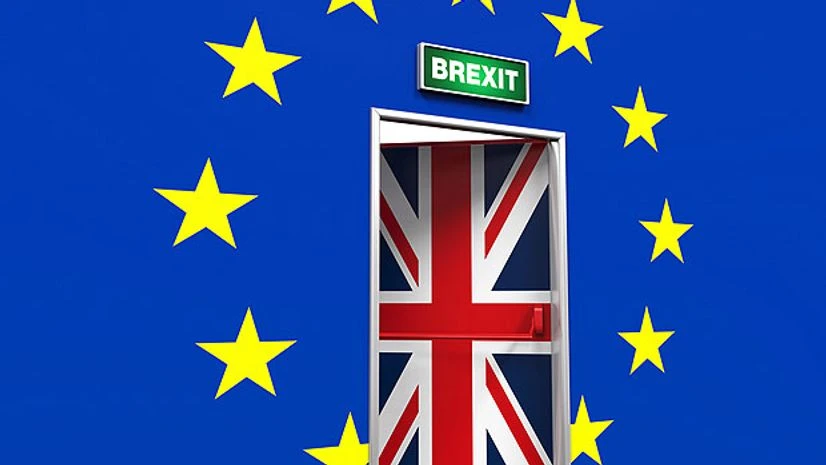European stocks extended their losses on Monday with the British pound falling to its lowest level in almost 31 years in the wake of the economic and political uncertainty following Britain's historic vote to leave the European Union.
The sterling dropped more than 3% to $1.32 against the dollar, the lowest level since September 1985. The euro was also under pressure, down almost 1% against the greenback.
"We are still looking for another 10% fall for the pound against the dollar in the coming months as data confirms the economic slowdown and monetary policy expectations increase," said Jeremy Cook, chief economist at World First, as cited by the BBC.
Banking, airline and property shares plunged on Monday on the London Stock Exchange.
Barclays shares were temporarily suspended after falling more than 10%, Royal Bank of Scotland fell nearly 9%, while shares of airline EasyJet plummeted 16%.
Also Read
London's FTSE 100 index was down 1.31%, while the FTSE 250 index, which is mostly made up of UK-focused companies, fell 2.2%. The German DAX slid 1.49% and the French CAC 40 index more than 1% in early trading.
Following Friday's 8% fall, Japan's Nikkei closed 2.4% higher on Monday backed by warnings from Japanese officials they may intervene in the currency markets to stabilise the yen.
Demand for safe haven assets such as gold remains strong. The price of the precious metal rose half a percent on Monday to $1,330 per troy ounce.
Moody's rating agency has cut Britain's credit outlook to negative, saying the referendum result would herald "a prolonged period of uncertainty".
"In Moody's view, the negative effect from lower economic growth will outweigh the fiscal savings from the UK no longer having to contribute to the EU budget," said the rating agency. It added the Britain had one of the largest budget deficits among advanced economies.
Standard and Poor's has also threatened to downgrade Britain's rating.
The British pound also had fallen sharply in trading in Asia, adding to Friday's record one-day decline.
On Friday, the pound had its biggest one-day fall against the dollar, at one stage sinking as low as $1.3236.
Chancellor of the Exchequer George Osborne will issue a statement before the start of trading in Britain in a bid to calm the markets.
Osborne has not spoken publicly since the 'Leave' campaign won Thursday's referendum paving the way for Britain's exit from the European Union (EU).
Authorities in Asia have been taking action to stabilise financial markets.
After an emergency meeting on Saturday, Japan's finance minister Taro Aso said that he has been instructed by Prime Minister Shinzo Abe to take steps to stabilise the currency markets, if needed.
"Risks and uncertainty remain in financial markets," Abe said.
The rising value of the yen is a concern to the Japanese government, as it makes the nation's exports less competitive.
After plunging almost 8% on Friday, Japan's benchmark share index, the Nikkei 225, added 1.3% on Monday.
In China, the central bank weakened the official value of the yuan by 0.9%, the biggest move for the currency since August 2015.
Jeremy Cook, chief economist at World First, said: "We are still looking for another 10% fall for the pound against the dollar in the coming months as data confirms the economic slowdown and monetary policy expectations increase."
Traders will be watching Britain's financial position closely over the coming months.
"The funding position of the UK, with its twin current account and fiscal deficits, are the next pressures to weigh," Cook added.

)
